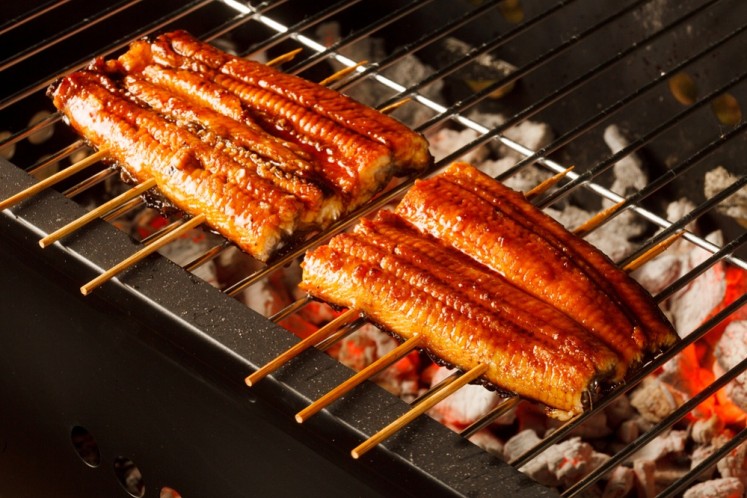[ad_1]
Washington – The United States and Japan agreed on a deal to remove Trump-era tariffs from about 1.25 million metric tons of Japanese steel imports annually after Washington granted similar access for European Union steelmakers last year.
The new deal, which excludes aluminum at Japan’s request, will take effect on April 1 and requires Japan to take “concrete steps” to fight global excess steel manufacturing capacity, largely centered in China, U.S. officials said Monday.
A joint U.S.-Japan statement said Japan would start to implement within six months “appropriate domestic measures, such as antidumping, countervailing duty, and safeguard measures or other measures of at least equivalent effect,” to establish more market-oriented conditions for steel.
The agreement, like the EU steel and aluminum deal reached in October, calls for steel imported from Japan to be completely produced in the country for duty-free access, a standard known as “melted and poured,” to reduce the risk of Chinese steel skirting U.S. tariffs.
Much of U.S. President Joe Biden’s trade efforts have centered around patching up strained relations with U.S. allies that are market-driven democracies.
“Today’s announcement builds on the deal we struck with the EU and will further help us rebuild relationships with our allies around the world as we work to fight against China’s unfair trade practices,” Commerce Secretary Gina Raimondo said in a statement.
The deal “will strengthen America’s steel industry and ensure its workforce stays competitive, while also providing more access to cheaper steel and addressing a major irritant between the United States and Japan, one of our most important allies,” Raimondo said.

U.S. steel industry executives have voiced concern about the Biden administration negotiating too much access for foreign steel makers that would unleash a flood of imports and crash steel prices at a time when they are investing billions of dollars in new capacity.
But the deal announced on Monday limits Japanese imports to about their two-year average from 2018 and 2019, a level largely set after the 25% “Section 232” national security tariffs were imposed by former U.S. President Donald Trump.
Unlike the EU deal, past steel product exclusions from tariffs will not be added to Japan’s quota for two years. Any exclusions must be applied for through the Commerce Department’s normal process, according to the U.S. announcement.
Japan also will initially not participate in U.S.-EU talks on a global agreement to discourage trade in steel made with high carbon emissions — another initiative aimed at battling carbon-intensive Chinese steel output. But U.S. officials said that Japan would confer with the United States on methodologies for measuring carbon intensity in steel and aluminum production.
Japan’s steel industry also is highly dependent on coal-fired blast furnace production, while more than 70% of U.S. steel is made with electric-arc furnaces that emit less carbon.
The metals dispute started in 2018, when Trump imposed duties on steel and aluminum from its biggest trading partners, including the EU and Japan, citing risks to national security. While the EU subsequently retaliated, targeting products including Harley-Davidson Inc. motorcycles, Levi Strauss & Co. jeans and bourbon whiskey, Japan did not, focusing instead on negotiating a trade deal with the U.S. to cover some agricultural and industrial products.
The metals tariffs on Japan remained when the Biden administration took office last year, and the U.S. made an offer to Japan to resolve the steel dispute in December, an official with knowledge of the talks said at the time. But Tokyo was holding out for a better deal and had wanted the tariffs to be abolished completely, the person said.
In terms of volume, Japan only accounts for about 4% of all steel imported to the U.S., and about 1% of all metal consumed in the U.S., based on Commerce Department data.
Still, it’s another domino falling for allied countries receiving exemptions to send steel duty-free to the U.S. market. That access makes domestic steel producers uneasy, because they argue it creates a slippery slope that opens the door for those countries with exemptions to ramp up their exports.
U.S. steelmakers also warn that exempted nations can act as pass-through points for metal coming from bad actors like China. They worry that Europe, which recently received an exemption, and Japan could unknowingly import metal from restricted countries and then export that to the U.S., flooding the market.
All steel from Japan that will be subject to duty-free entry will need to be melted and poured in the nation, the U.S. officials said, a measure meant to block imports from other nations using Japan as merely a point of transit.
In a time of both misinformation and too much information, quality journalism is more crucial than ever.
By subscribing, you can help us get the story right.
SUBSCRIBE NOW
[ad_2]
Source link


















